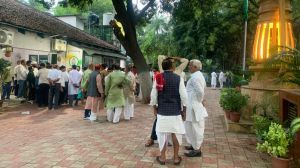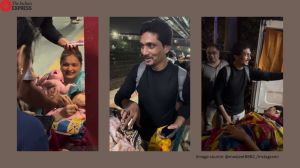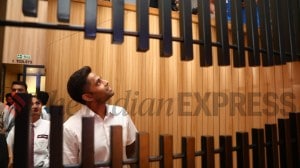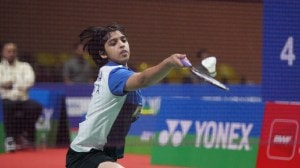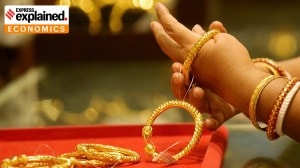Her unborn child dead, this ‘tsunami mother’ clings to hope
Like hundreds of parents who lost their children to the tsunami on December 26 last year, Lakshmi was left devastated. Thekkutheru, in Keech...

Like hundreds of parents who lost their children to the tsunami on December 26 last year, Lakshmi was left devastated. Thekkutheru, in Keechankuppam, a fishing hamlet just a couple of hundred feet away from the sea on the Nagapattinam coast, was wiped off the map. Giant waves swallowed the village, devouring Sumithra (12), Madan (7), Yoheshwari (5) and Suhaan (3), Lakshmi’s four children.
But in May this year, Lakshmi returned to her temporary shelter from a fertility clinic in Erode, 250 km away, smiling for the first time since Black Sunday. She had been told by the Sudha Hi-Tech Fertility, IVF and Endoscopy Centre that she had been successfully impregnated, and could even have twins.
While many of the ‘‘tsunami mothers’’ from Akkaraipettai, Keechankuppam and Kallar, the worst affected fishing villages near Nagapattinam, resorted to ‘‘recanalisation’’ — reversal of sterilisation — Lakshmi had not been convinced this would be enough.
Her premonition was not unfounded. According to village health nurse S Ranjini, 15 mothers underwent recanalisation in Nagapattinam in February. Six months on, not one is pregnant. Preparing a lunch of rice and fish curry for her husband, P. Selvamani (37), at their relief shelter in Nagapattinam town, Lakshmi told The Indian Express that Dr E. Tamizharasi, the chief gynaecologist at the local hospital, had suggested she visit the Sudha Clinic. It had a record of 1,200 IVF-assisted pregnancies. In the IVF procedure, resorted to when fallopian tubes are damaged or sperm count is poor, the
eggs are fertilised in a laboratory and the resulting embryo placed in the woman’s uterus.
Encouraged by the Rs 8 lakh they had received as compensation for their dead children, the couple met Dr S. Dhanabagyam, a fertility specialist at the Sudha Clinic. After the necessary tests, Lakshmi (32) underwent embryo transfer by ICSI (Intra-Cytoplasmic Sperm Injection) procedure on May 7. ICSI is recommended for very low sperm counts. The eggs were fertilised in the laboratory by direct injection of a single sperm into each egg.
On June 25, Lakshmi went to Erode for a routine check up, only to be told the embryo inside her had no heartbeat. It was dead, a case of ‘‘blighted ovum’’. She was asked to immediately stop the daily dose of hormonal (progesterone) injections,used to nourish the embryo.
Lakshmi and her husband had by then spent Rs 2 lakh on the ICSI procedure. They came home feeling intensely low. Deciding to ignore the doctor’s instructions, they refused to stop the injections. ‘‘I feel fine. There’s nothing wrong with me and my baby,’’ Lakshmi argued stubbornly.
Resorting to faith, they visited the nearby Vaduvazhi Amman (Durga) temple to consult the oracle. ‘‘The priest told us the baby is alive and asked us not to stop the injections. He (the priest) is our only guide now,’’ said Lakshmi, her voice quivering. Her husband brought out a box to show the vials, costing Rs 53 apiece, kept cool by small blocks of ice. The desperate couple, having lost everything, could now cling only to hopeless hope. When The Indian Express met her, an agitated Dr S Dhanabagyam said, ‘‘She should stop the injections immediately. She could develop hormonal complications… ’’
Perhaps the expensive ICSI process itself could have been avoided if Selvamani’s sperm count was normal. Yet here too the tsunami left its curse. ‘‘I cannot believe,’’ Dr Dhanabagyam said, ‘‘a man who has fathered four children can have such low sperm potency. Maybe he is going through severe depression.’’ She has recommended a session with the clinic’s andrologist.
Meanwhile, Lakshmi dreams of the children she isn’t carrying. Having lost four ‘‘chubby, healthy’’ children to the giant waves, she is not letting go of her ‘‘twins’’.






- 01
- 02
- 03
- 04
- 05









